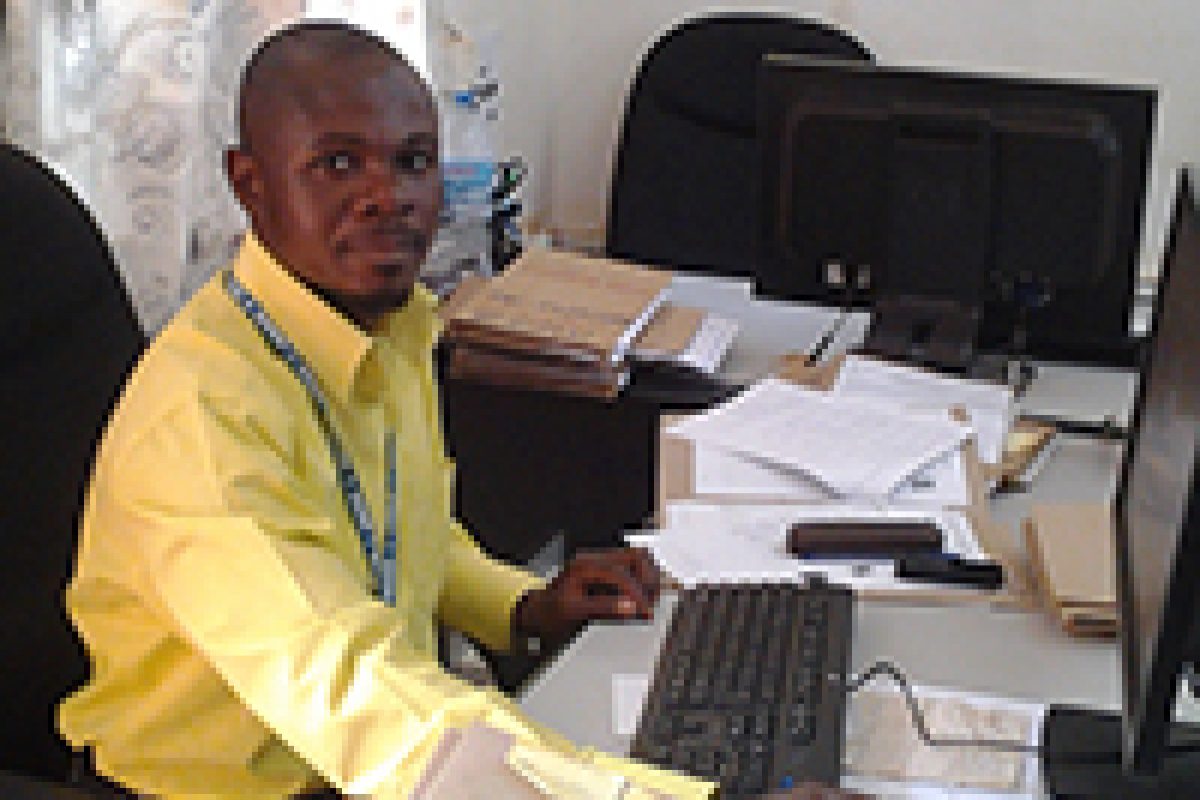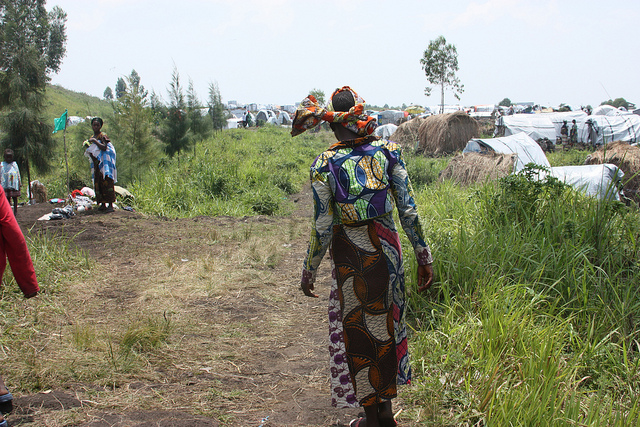Ransome Nettey, ICMC Deployee, in Tanzania

Ransome Nettey was deployed by ICMC as a Resettlement Expert in November 2014. Currently in Tanzania, he conducts interviews with refugees considered for resettlement, most of whom fled Democratic Republic of the Congo (DRC), the largest country in Sub-Saharan Africa. DRC has been ravaged by a decades-long civil war and mounting corruption. Due to social unrest and human rights abuses caused by ethnic and political conflicts, millions have been forced to flee. Nearly 4 million people are internally displaced while over half a million have fled to neighboring countries as refugees. Women and young girls are paying the highest price, being often subjected to sexual violence in conflict-affected areas.
When did you start working with ICMC as a resettlement expert?
I joined ICMC as a deployee in November 2014 when I was deployed to northern Tanzania. I have been based in Kasulu town since. This is a rural area marked by two extreme weather conditions: heavy rains alternating with very dry periods, which makes my travel to the Nyarugusu camp where I work a challenge, but also an adventure! I am originally from Accra, Ghana where I worked in the humanitarian field before my ICMC deployment to Tanzania.
What are your day-to-day responsibilities as a deployee?
My main role is to conduct interviews with refugees who are being considered for resettlement to a third country. I normally spend three or four days a week at Nyarugusu camp, which is 70 km from Kasulu. Beforehand, I make sure to carefully read over all my case notes so that I am well prepared for each interview. Often it is difficult for the refugees to recount the traumatic events that they suffered, so I am very careful to approach my interviews with a lot of sensitivity and professionalism. The interviews start with an explanation of the resettlement process, then we talk about the refugee’s experiences in their home country and also, in Tanzania, where they now live. My job is to understand their personal circumstances that make them vulnerable. Normally, I have an interpreter working with me to ensure that the refugee clearly understands the discussion, and so that I can also accurately capture their full story. After the interview, I complete a resettlement registration form (RRF). This form captures the story of the refugee and her family and explains why resettlement is the best solution for them. Doing a good job completing the RRF is very important because it is used by resettlement governments to help determine if the family will ultimately be resettled to a third county. Once the cases are finalized, they are sent to resettlement states, who continue the process. In my duty station, our resettlement cases are referred mainly to the USA, Canada, and Australia.
Do you remember a specific case you worked on?
I do. I recently met Djoelle* and the experiences that she and her family have suffered made a great impression on me. Djoelle endured so much trauma and violence; she is a great example of why resettlement is such a vital protection and solutions tool. Let me tell you her story.
Djoelle was born in South Kivu, in the Democratic Republic of the Congo. Her father was a businessman who traded in salt, while her mother was a farmer. Early one morning in 1998, Djoelle and her younger sister, Belvie*, were at home when they heard gunshots and cries in their neighbourhood in Makobora. The girls were alone, as their parents had already left the house to go to work. Terrified, Belvie ran out of the house to see what was happening and saw people fleeing the village in different directions. On her street, she saw armed men who were setting the houses on fire with gasoline and torches, with families still inside. Fearing for her life, Belvie grabbed her sister Djoelle, and the pair ran outside to join their neighbours trying to flee.

Suddenly, Djoelle felt a sharp pain in her left arm – she had been hit by a bullet; she fell down and lost consciousness. When she woke up, Djoelle found herself in a hospital where the Red Cross had brought her. She looked around the room for her sister and parents. When she looked down at her small frame under the hospital sheet she realized with shock that her left arm was gone. It had been amputated because of the severity of the bullet wound and the bleeding. Fortunately, Djoelle’s parents managed to trace her to the hospital following an announcement in the village. Her younger sister Belvie was also hospitalized; she had been shot in the right leg and as a result became paralyzed.Following these terrible events, Djoelle and her family relocated to a different town called Lubondja, as their old house had been destroyed in the attack. They slowly started trying to rebuild their lives, when tragedy struck again. In 2009, Djoelle’s father went to work one morning and never came home again; he had simply “disappeared”. Friends and family organized a search party to look for him. One week later his battered body was found in a forest. Djoelle believes he was abducted and murdered because of a family conflict over inheritance. She thinks that her extended relatives hired militants to kill her father.
With her father gone, the family was living without any male protection. Later the same year, Djoelle was out working on the farm alone. Normally her mother would be at her side but she was sick that day. While tending her crop, four men attacked her and one of them raped her while the others stood by. Beaten and shamed, Djoelle hid the brutal attack from the village elders fearing they would cast her out. There was no police station in her town so she couldn’t file a report either, so she suffered in silence. Soon Djoelle realized that the rapist had made her pregnant and she gave birth to a baby boy, whom she named Joshua.
After her father’s death, Djoelle’s extended relatives reclaimed his all properties, leaving Djoelle, her sister, and mother penniless. Fearing that the relatives might also try to kill them, Djoelle and the rest of her family fled from Lubondja. They travelled by road for two days, spent one day along the shores of Lake Tanganyika and crossed over in a small boat to Tanzania. Djoelle arrived in Tanzania in 2009, where she since sought asylum. As an ICMC resettlement deployee, I interviewed her for resettlement in May 2017.
I am happy to say that Djoelle and her little son Joshua have been referred for resettlement to the United States. Joelle’s mother and siblings have also been referred. I sincerely hope that they will depart soon to start a new life far away from all of their incredible suffering. Nevertheless, the changes in the US program mean it could be a very long time before they can have their interview with the American immigration officials. Joelle and many other refugees like her face an uncertain path toward a durable solution.
*Beneficiaries’ names have been changed to protect their identities.